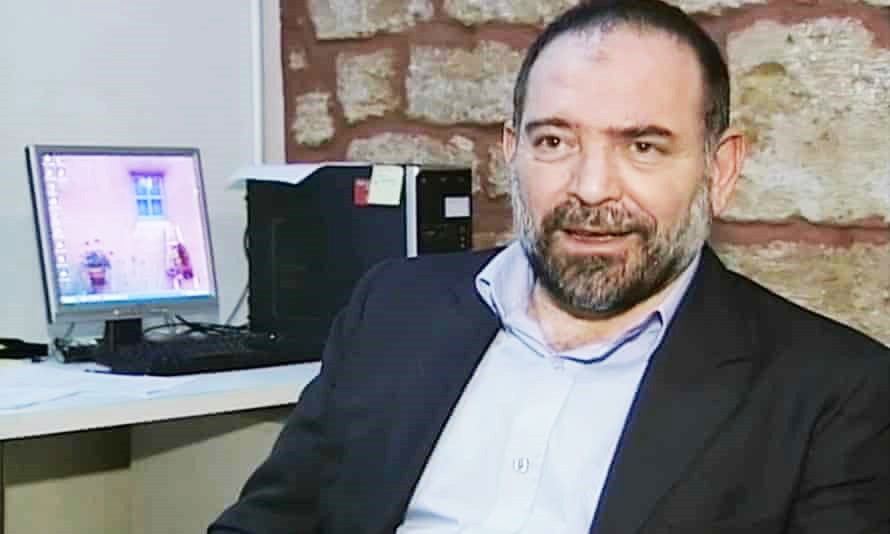BEIRUT, (Reuters) – A prominent Lebanese Shi’ite publisher who criticised the armed Hezbollah movement was shot dead in a car in southern Lebanon yesterday, the first such killing of a high-profile activist in years.
A judge said the body of Lokman Slim had four bullets in the head and one in the back. A security source said his phone was found on the side of a road.
They said the motive was unclear.
Slim, who was in his late 50s, ran a research centre, made documentaries with his wife and led efforts to build an archive on Lebanon’s 1975-1990 sectarian civil war.
He spoke against what he described as the Iranian-backed, Shi’ite Hezbollah’s intimidation tactics and attempts to monopolise Lebanese politics.
His sister suggested Slim had been murdered because of this. He was last seen after visiting a poet friend. His wife said he had gone missing overnight.
Hezbollah said it condemned the killing, which Lebanese officials, including the president, called an assassination U.S. Secretary of State Antony Blinken termed it a “heinous assassination” and called for Slim’s killers to be brought swiftly to justice.
“It is cowardly and unacceptable to resort to violence, threats, and intimidation as a means of subverting the rule of law or suppressing freedom of expression and civic activism,” Blinken said in a statement.
Human rights groups, the United Nations and other Western diplomats all demanded an investigation. “We deplore the prevailing culture of impunity,” EU ambassador Ralph Tarraf tweeted.
A Lebanese press freedom centre, SKeyes, said it feared a cover-up of the crime and more attempts to eliminate “symbols of free political thought”.
The centre was founded after a car bomb killed journalist Samir Kassir in 2005, at a time when a series of assassinations hit Lebanon targeting critics of Syria’s 15-year domination.
At Slim’s family home in Beirut’s southern suburbs, where Hezbollah holds sway, relatives sat in shock. Some wept in silence. One relative said they had found out about his death from a news alert while at a police station.
“What a big loss. And they lost a noble enemy too … It’s rare for someone to argue with them and live among them with respect,” his sister Rasha told reporters, without naming Hezbollah.
She said he had not mentioned any threats. “Killing is the only language they are fluent in,” she added. “I don’t know how we will go on with our work … It will be hard.”
‘A BIG LOSS’
In an interview last month on Saudi’s al-Hadath TV, Slim said he believed Damascus and its ally Hezbollah had a role in the port blast that ripped through Beirut in August, killing 200 people and injuring thousands.
Hezbollah has denied any links to the explosion.
President Michel Aoun, a political ally of Hezbollah, said he had ordered an investigation into Thursday’s crime, which came exactly six month since the port blast. The official investigation into the explosion has yet to yield results.
Former premier Saad al-Hariri, whose father’s assassination sparked regional turmoil in 2005, said Slim had been clearer than most in identifying the source of danger to the nation.
Slim’s criticism of Hezbollah faced rebuke from its supporters, who called him “an embassy Shi’ite,” accusing him of being a tool of the United States.
Washington, which classifies Hezbollah as terrorists, has ramped up sanctions against it to pressure Tehran.
Slim founded a nonprofit to promote civil liberties which received a grant under the U.S. Middle East Partnership Initiative and worked with an American think tank, leaked WikiLeaks diplomatic cables said in 2008.
In late 2019, Slim said people had gathered in his garden, chanting slurs and threats. His statement held Hezbollah’s leader responsible.
Slim also said he had received death threats after speaking in a debate at a Beirut camp that activists set up when protests against all the country’s political leaders swept Lebanon.
“His murder is a very big loss for Lebanon, for culture,” said Hazem Saghieh, a well-known Lebanese journalist. “He was one of a few who only knew how to speak his mind.”

